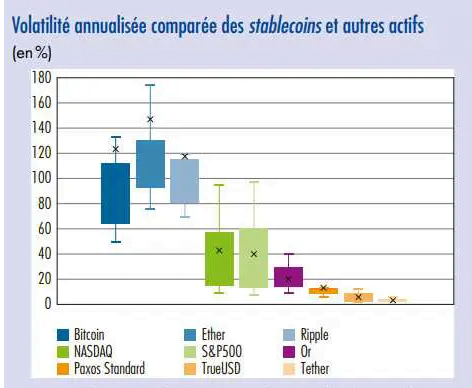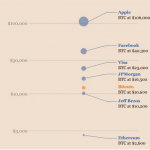- The report collected information from 9,500 people around the world.
- Lower-income people tend to be less optimistic about the future of Bitcoin.
The versatility and potential of Bitcoin have allowed it to be seen as a tool for various purposes. Among these, its purpose as an investment instrument stands out as an asset to obtain future profits, and as a currency, to make payments and transactions without the limitations that fiat money and traditional banking present.
According to a report recently published by Block, Inc. (a company led by former Twitter CEO Jack Dorsey), the income a person receives greatly influences their perspective on the usefulness of Bitcoin in their lives. This conclusion is based on the responses of 9,500 people surveyed, originating from 14 different countries, located in different regions of the world.
The report entitled “Bitcoin: Knowledge and Perceptions” states that people who receive high or higher incomes than the average in their environment tend to see Bitcoin as an investment instrument. In fact, the majority of respondents answered that “a good reason to buy Bitcoin is to make money”.
For their part, people whose income is low or below the average in the country they live in tend to think of Bitcoin as a tool that allows them to send money and pay for goods and services. In other words, they see Bitcoin more as a currency than an investment instrument.
Satoshi Nakamoto, the pseudonym by which the creator of Bitcoin is known, presents his product as “a peer-to-peer electronic cash system” in his White Paper. According to this definition, Bitcoin is definitely a currency. However, the performance that many have obtained by buying and selling BTC in the face of its changing price in the market has also led it to become an asset with which one can speculate in order to obtain profits.
Currencies and their use as a refuge or speculative assets
Venezuela is an example of how a currency can change its main function as a payment instrument to become a safe haven, given the right circumstances. In this case, the trigger was the hyperinflationary process that the country went through between 2012 and 2020.
Faced with the devaluation of the national currency, the bolivar, at that time, people began to see the US dollar and bitcoin as safe-haven assets to protect themselves from the dramatic and constant loss of value of the bolivar.
Although the previous example adds a fiat currency to the equation, it allows us to analyze the reaction of a society that, in the midst of an economic crisis, can convert a currency into an asset to protect its assets; regardless of whether its issuance comes from a central bank or a decentralized network like Bitcoin.
While the USD may have been the safe haven of choice for most Venezuelans, Bitcoin was not absent. Various news media reported at the time how the adoption of the currency designed by Satoshi Nakamoto accelerated its growth in this country as a result of the devaluation of the bolivar and the exchange controls imposed by the national government.
Interest in Bitcoin by country
When evaluating the reasons that arouse the most interest in Bitcoin by country, China, Nigeria, Vietnam, and India were the ones who headed the list of intentions to acquire BTC to send remittances and pay for goods and services. What these nations have in common is that the GDP per capita of their population is relatively low, while their income related to receiving remittances is high.
Returning to the topic of using Bitcoin as a refuge against inflation, it is not surprising to see Argentina leading this list of countries. The inflationary process that the South American country has been experiencing and the exchange controls established by its Government have promoted the use of Bitcoin among its inhabitants.
The level of optimism regarding the future of Bitcoin is another area where countries like Argentina, Nigeria, Vietnam, and India are leading the way. Likewise, the population of these countries admits to having greater knowledge about the use and operation of Bitcoin, according to the results of the surveys carried out by Block, Inc in collaboration with Wakefield Research.
A curious fact about the optimism about the future of Bitcoin is that people with higher incomes, those who see it more as a speculative or investment instrument, are those who have more faith in it. On the contrary, people with lower economic incomes, those who mostly see Bitcoin as digital money, are not so optimistic about its future.
Bitcoin will have to be reborn
The driving force behind Bitcoin’s global recognition may be its speculative performance rather than its digital cash function. Changing this perception of most people who see it that way can take years of education.
According to writer and college-level finance professor Noah Smith, “The faster Bitcoin as an investment dies, the faster it will come to life as a currency.” This statement is part of a report made by Smith for Bloomberg in 2015.
Smith believes that people should abandon expectations that the price of BTC will skyrocket at any moment in order to capitalize on gains. When that changes in the mentality of those who have bitcoins, its use as a currency will become more widespread; because there will be a greater willingness to get rid of it by using it to pay for goods and services on a daily basis.







